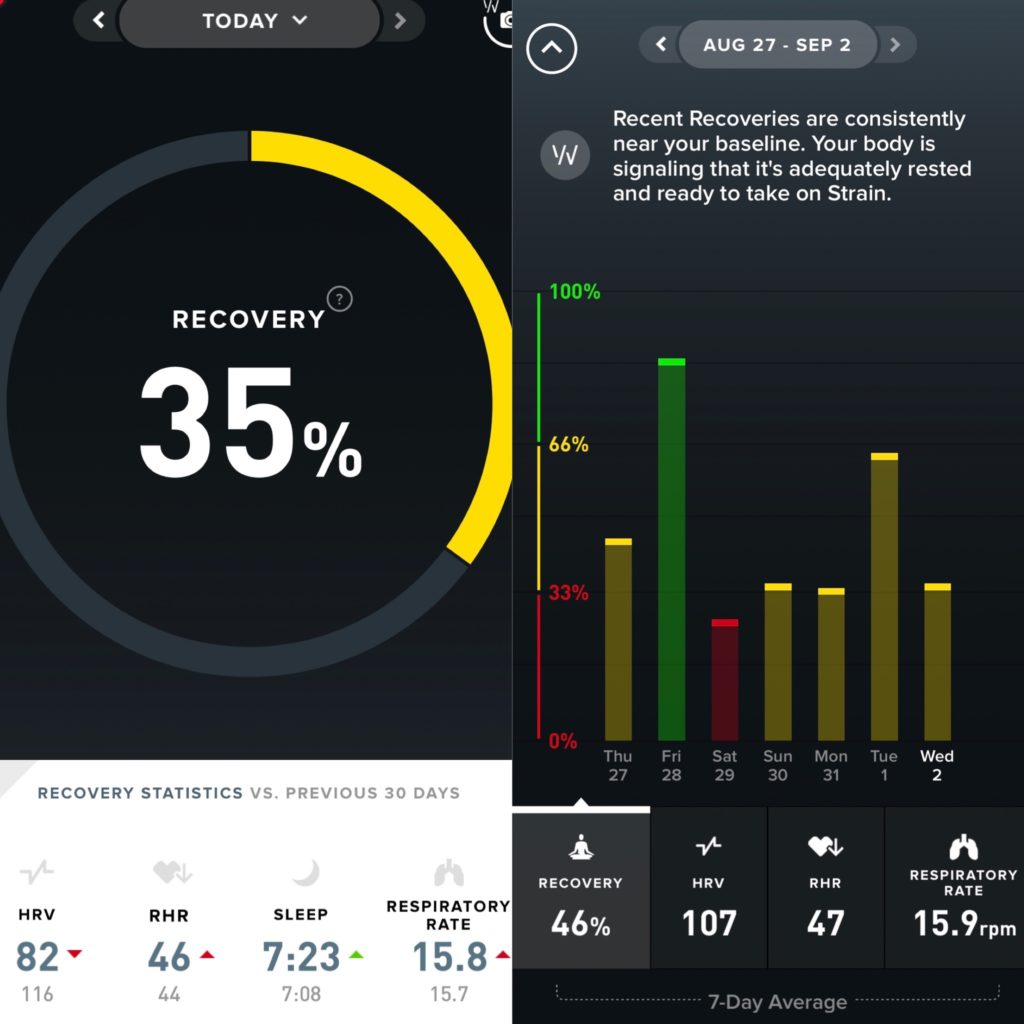If you followed me during my Fit2Fat2Forty journey, you heard me talk a lot about how my diet and exercise habits were affecting my energy levels throughout the day. And although I felt tired and unmotivated during the day, when it came time to go to bed, I couldn’t sleep. What I didn’t talk as much about was how that poor night’s sleep affected my weight gain. It was a dangerous cycle that can be easy to fall into, but extremely difficult to get out of. I spoke about this in detail with my friends at Whoop. You can read more about it here.
If you are trying to lose weight, you probably think that your diet and exercise routine are the main factors that affect your weight. Sleep is something that many of us fail to get enough of today, but it’s crucial for anyone looking to maintain or lose weight this year. Sleep and weight gain are very closely related, and here we’re going to look at the impact that sleep has on your daily life, diet, and appetite.
How Sleep Affects Our Diet
Over the past decade, many studies have been carried out to research the connection between sleep and diet. Poor sleep quality and a lack of sleep can reduce your metabolism, which in turn will lead to weight gain. On top of that, you also put yourself at risk of obesity and other health conditions. Metabolism is the process where the body converts the food and drink we consume into energy, and everything we do in the day, including sleeping, impacts our metabolism. Our metabolism generally slows down by about 15% during our sleep time, but sleep deprivation can lead to this becoming irregular. On top of that, the more time you spend awake in the night, the more likely you will be to reach for an extra snack that you didn’t need.

During my Fit2Fat2Forty experiment, I tracked my quality of sleep with a Whoop strap, which gives me valuable information about my sleep, recovery, and strain each day. I saw a direct relationship between the quality of my diet and the quality of sleep I was getting every night. After I started losing weight and eating healthy, my quality of sleep immediately improved. You can save $30 on a Whoop strap and join my team here.
How Sleep Affects Our Appetite
When you’ve had a terrible night’s sleep, you know how tempting it can be to ignore your regular diet and feast on junk food for the rest of the day. Sleep and weight gain are commonly linked due to an increased appetite after a night or two of poor sleep. Neurotransmitters in our body control our appetite, and ghrelin and leptin are the neurotransmitters that are most commonly associated with appetite. When you don’t sleep well, you’ll find that these neurotransmitters aren’t regulated properly, increasing your appetite and decreasing the feeling of being full after eating a sufficient portion of food. On top of this, you are much more likely to choose foods that are rich in carbohydrates and calories after a bad night of sleep than when you wake up feeling well-rested.
How Sleep Affects Our Physical Activity

A key factor of losing and maintaining weight is physical activity, but a lack of sleep can make it incredibly hard to keep motivated with our usual workout routine. Whether you exercise in the morning or at night, the chances of you making your training session when you are feeling exhausted are incredibly unlikely. Instead, you’d rather hit the snooze button and enjoy another hour of sleep instead. While it’s okay to rest every once in a while when needed, a lack of sleep and weight gain go hand in hand when this happens too often. You’ll likely wake up feeling like you have less energy, and it can be dangerous to do certain physical activities when you are feeling exhausted, such as weightlifting.
Tips For A Healthy Sleeping Routine
Now that you know about the link between sleep and weight gain, you are probably wondering what you can do to improve your sleeping routine. These are just a few of the key ways you can work to create a healthy routine:
- Stick to a regular schedule. Try to go to sleep and wake up at the same time every day. Aim for between seven and nine hours of sleep a night when possible.
- Take supplements that can help you relax and fall into a deeper sleep. Magnesium, Vitamin K2, and Melatonin are popular options.
- Stop any light from entering your bedroom. You need a dark environment in order to sleep well, so avoid any lights from electronics disturbing your sleep.
- Turn off screens 1-2 hours before going to bed. Blue light emitted from these devices sends signals to your brain and makes it think it is still daytime.
- Avoid any stressful activities before bedtime, such as watching the news. This can make you feel more anxious and stressed and stop you from relaxing and falling asleep.
- Try not to eat for a couple of hours before heading to bed. This can impact your chances of falling asleep and may also stop you from reaching your weight loss goals.
- Create a night-time routine that allows you to wind down and relax before heading to bed each day. This might include having a bath, reading, or chatting with your partner.
- When you are going through a period of bad sleep, try to avoid daytime naps where possible. This can throw you off your sleep schedule even more and stop you from falling asleep at night.
By following these top tips listed above, you can minimize the impact of poor sleep and weight gain. Sleep is something that many of us forfeit for other activities, but it’s integral to our overall health and wellbeing. You can learn more about creating healthy sleep, diet, and exercise habits in my Back2Fit program, where I teach you how to recognize how to control all aspects of your life that contribute to weight gain.



